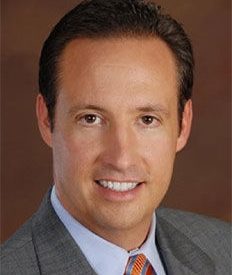Revenue failure declared for fiscal year 2017 for Oklahoma
Team Radio Marketing Group - February 21, 2017 2:50 pm

OKLAHOMA CITY — The appropriated budget hole for fiscal year 2018 will be $878 million, and there is a revenue failure for FY 2017, Secretary of Finance, Administration and Information Technology Preston L. Doerflinger announced.
Dorflinger made the announcements to the Board of Equalization on Tuesday.
“The numbers are bad this year and next,” he said.
“I don’t know how much more I can emphasize that the time for action is now,” Doerflinger said. “We need new recurring revenue sources. If we don’t change our path, then we will be doing incredible harm that could set our state backward for decades.”
The Board of Equalization approved $6,029,537,421 in revenues for FY 2018 appropriations, which is $701.5 million, or 10.4 percent, less than was appropriated for FY 17.
The true budget hole is larger than what the board certified Tuesday.
Nearly $144.5 million in the FY 2017 Rainy Day Fund appropriations and about $32 million in the FY 2017 revolving fund authorizations are not factored into the FY 2016 baseline amount used by the board.
With those factors considered, there will be $878.2 million, or 12.7 percent, less to appropriate for FY 2018.
The board also formally acknowledged a general revenue failure for FY 17. As a result, state agencies receiving monthly general revenue allocations will see those allocations reduced by 0.7 percent beginning in March. The latest projections show the FY 17 General Revenue Fund will fall $296.4 million, or 5.7 percent, below the official estimate made in June.
By law, if GRF collections are projected to fall more than 5 percent below the estimate for the remainder of the fiscal year, the Office of Management and Enterprise Services director must declare a revenue failure and initiate mandatory appropriation reductions to end the shortfall and maintain a balanced budget.
Doerflinger, who is the director of OMES, issued the declaration Tuesday. Agency directors were directly notified of the 0.7 percent reduction amount after the Board of Equalization meeting.
“If current trends continue, we will likely have to issue deeper cuts later in the year with fewer months to absorb it,” Doerflinger said, adding that the Legislature should act soon to increase recurring revenue along the line of the governor’s proposal.
“These problems will not just go away,” he said. “They must be addressed head on. We have made bold proposals to change the trajectory of our revenue collections, but action must be taken now.”



